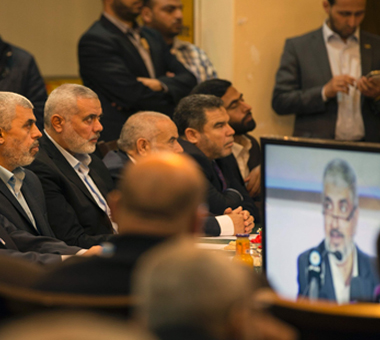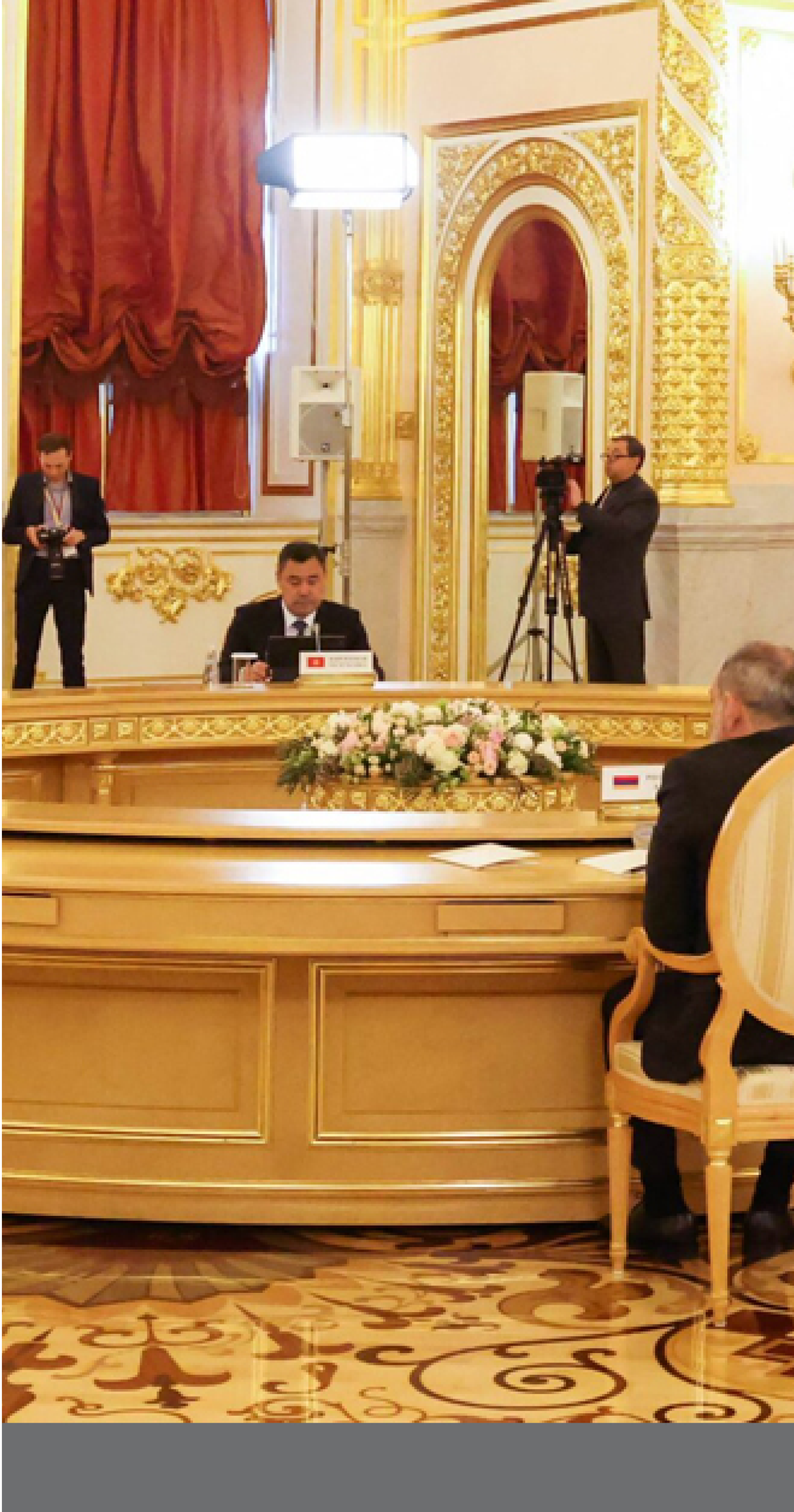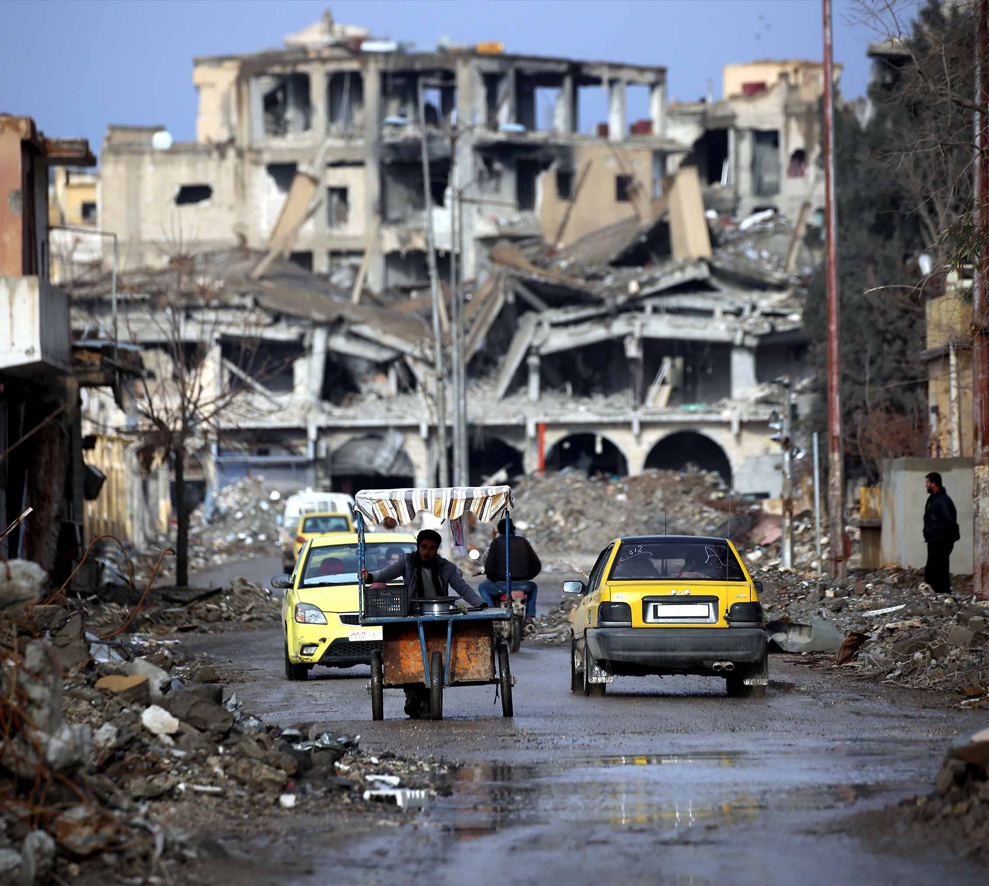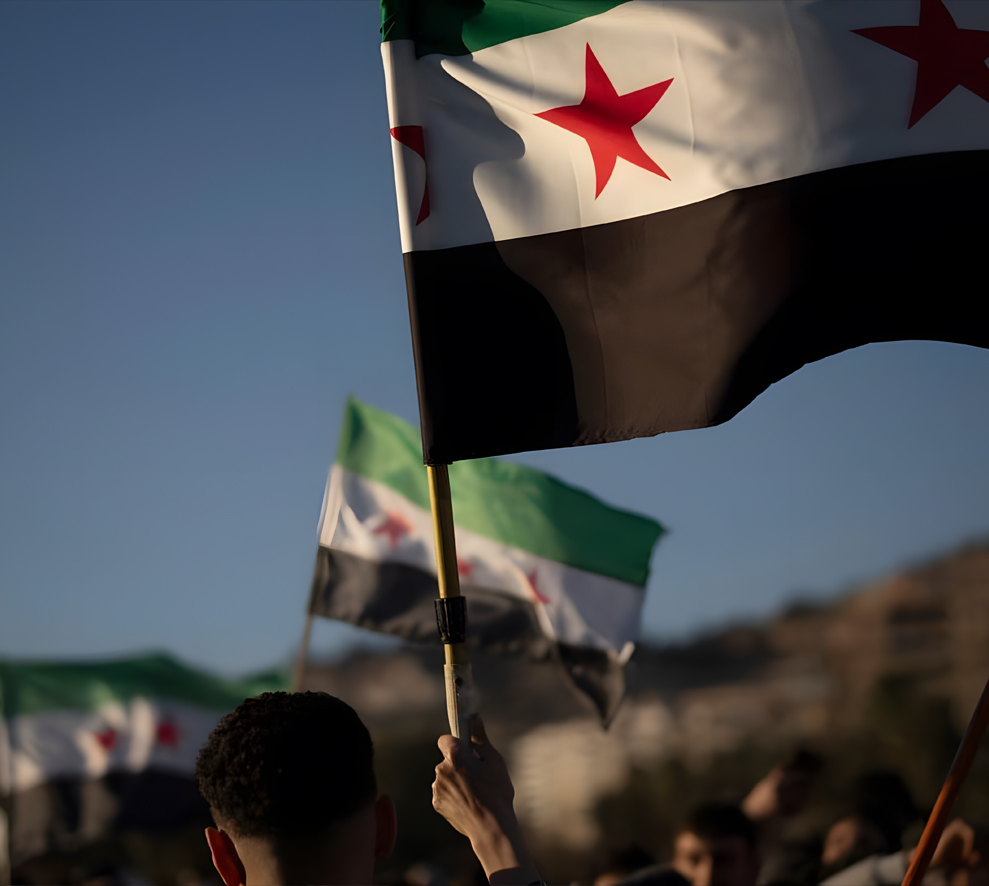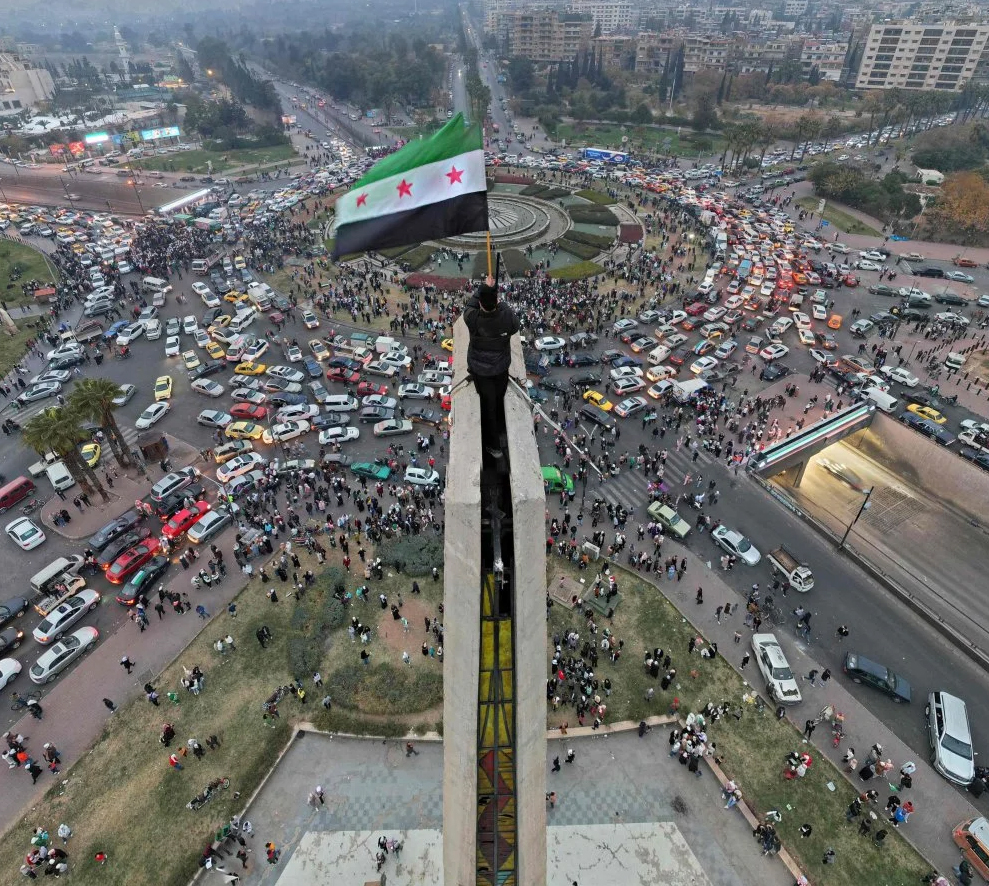Introduction
On September 15, 2022, Hamas announced in an official statement, "One Nation in the Face of Occupation and Aggression," that it "continues to build and develop solid relations with the Syrian Arab Republic within the framework of Hamas’ decision to resume its relations with brotherly Syria." It stressed Hamas’ support for Syria, its appreciation for "the leadership and people of the Syrian Arab Republic," and its firm position on "the unity of Syria as a land and people," rejecting any claims of prejudice.
Hamas' decision to resume relations with Syria came a decade after its decision to leave Damascus in February 2012 following the Syrian crisis that erupted in March 2011, a decade that saw many shifts in Hamas' attitudes toward Syria as well as in Damascus' attitudes toward Hamas.
The announcement of resuming the relations between Hamas and Syria was neither an emotional act nor a response to certain events. It was the expected result of a series of regional and international changes that influenced the balance of political interests of the relevant parties.
In this context, it is possible to interpret Hamas' announcement both in terms of objective changes in the regional and international environments over the past ten years and the expected political interests of both Hamas and Syria. Thus, the future of such relations can be extrapolated, which is the subject of this analysis and its main question.
Hamas: Aspirations and Pressures
Hamas may have the greatest interests in resuming relations with Syria, even if such relations are not fully realized or evolve the way Hamas wanted. Hamas struggles to build a new political identity that has broad ambitions far beyond being a mere political movement. It wants to be seen as more than an extension of the Muslim Brotherhood in the West Bank and Gaza Strip.
On the one hand, Hamas aspires to play an active political role in the region. Its success in doing so constitutes a lifeline for the Muslim Brotherhood after its recent series of failures in the Arab world. This is especially true since the Gaza Strip is considered the last stronghold of governance affiliated with the Muslim Brotherhood. Hamas is a pragmatic movement aware that this role is governed by the game of "permanent interests" not "permanent alliances."
The return of relations with Syria embodies Hamas' search for any official Arab legitimacy, sending the message to influential countries in the region and the world that it is able to politically adapt in the most difficult circumstances.
On the other hand, Hamas faces a series of pressures, internally and externally, that seek to reduce its influence both militarily and in the court of public opinion regarding Palestinians and the Arab population. This situation echoes the pressure on the Palestinian Authority, which fears a repeat of the Gaza model in the West Bank. Israeli pressure to chart the course of the movement's "permissible resistance" and its political approach, as well as pressure from regional states to integrate it further into the region’s calculations, is also at issue.
Factors and Variables
In addition to the foregoing, there are six factors and variables against which the Hamas announcement should be analyzed.
First, the end of betting on the Syrian opposition at the regional level, especially after the Muslim Brotherhood’s failure in the Arab world and its regional and semi-global orientation to overcome the issue of regime change in Syria. Thus, Hamas' relations with the Syrian opposition turned into a heavy burden that should be abandoned, in a face-saving way, under the slogans of confronting occupation and aggression.
Second, Turkey, the movement's most important ally, is moving to resume relations with Syria. Tellingly, the Muslim Brotherhood international organization did not oppose such move. This may indicate its tacit approval of Hamas' recent declaration.Third, the role of Iran and Hezbollah did not stop for the sake "returning" the Muslim Brotherhood to the domain of the Iranian-Syrian axis, a role that Hezbollah Secretary General Hasan Nasrallah referred to during a dialogue with the Al-Mayadeen television news network in July 2022, Declaring his interest in settling the relationship between Hamas and Syria, he stated that "Syria is open with regard to the relationship with Hamas, and the path is positive.”
Fourth, Russia's quest to strengthen its regional role in the Middle East, especially regarding the Palestinian issue and the Syrian crisis, by strengthening the Russian-Iranian-Syrian axis of the alliance. Such a role was clearly demonstrated during the September visit to Moscow of a delegation from Hamas headed by the head of its political bureau Ismail Haniyeh. The visit included a meeting between Haniyeh and Russian Foreign Minister Sergei Lavrov, which, Haniyeh indicated, reached "decisions on a number of issues in the Middle East."
Fifth, the tense situation on the ground in the West Bank and the increasing talk of the possibility of the collapse of security there, whether due to the expected Israeli military campaigns targeting the north of the West Bank or because of the increasing intensity of internal disputes in Fatah regarding the Palestinian Authority future after President Mahmoud Abbas leaves office. Therefore, there is a need for Hamas to strengthen its Arab and regional positions by virtue of what it sees as a "right" to participate in shaping the future of the West Bank.
Sixth, Hamas' quest to enshrine its representative legitimacy in the official Arab and regional system did not end with Algerian President Abdelmadjid Tebboune receiving Haniyeh and the movement's delegation with all the honors accorded heads of government on the anniversary of Algeria's independence in the presence of the Palestinian Authority delegation headed by Mahmoud Abbas.
It should be noted that this is in addition to Haniyeh’s earlier visit to the Sultanate of Oman to pay condolences on the death of Sultan Qaboos two years ago in the presence of Abbas as well; the official representation enjoyed by Hamas in Qatar and Turkey; its relations with Egypt in the management of the affairs of the Gaza Strip; and its relentless pursuit of official relations with Jordan.
Problems and Obstacles
Hamas' announcement to resume its relations with Syria has not and will not pass without internal problems or external obstacles. The internal problems are represented in the rejection of that declaration by the Salafi orientation within its ranks, as well as by its members supporting the Syrian opposition. The external obstacles include the Syrian perception of the relations’ future with Hamas, as well as the controls and conditions it can include.
Internally, and at the level of the movement's supporters and sympathizers from the Muslim Brotherhood, Hamas' announcement to resume its relations with Syria provoked mixed reactions, in which the reaction to the sharp rejection of that declaration was clear from some of its supporters, including certain religious figures.
These reactions forced the Hamas to invoke the "legitimate position" to confront the rejectionists. A statement signed by a "gathering of Palestinian scholars" was issued on September 20 stating that Hamas' move is subject to "the principles of legitimate policy based on contradicting interests and evils. The movement may act as it deems appropriate within this rule, when it outweighs interest in favor of the Palestinian people and their resistance, and its victory is obligatory on its Muslim brothers, because it defends the sanctities of the nation and seeks to liberate them." The statement was signed by 30 Islamic University of Gaza professors.
Externally, the most important obstacles are the Syrian perception of future relations with Hamas and the controls and conditions it may contain. To date, no official statement has been issued by the Syrian government in response to the Hamas announcement nor have the details of the resumption of relations between Hamas and Syria been addressed. This may indicate that the announcement does not reach the level of restoring relations as they were previously. As the Middle East Eye, a British news website, noted, a source from Hamas said the regime will not allow some Hamas figures to enter the country again, most notably Hamas leader Khaled Meshaal.
What about Jordan?
It is no secret that Hamas has continuously exerted efforts to restore its relations with the Hashemite Kingdom of Jordan since 1999, the year which witnessed Jordan's ban on the movement and the removal of its leaders from Jordanian territory. Clear evidence of Hamas’ efforts include Mashaal’s visit to Jordan in August 2022 "for personal and family reasons" and his previous visit there accompanying Haniyeh to attend the funeral of the movement’s former leader Ibrahim Ghosheh in 2021, as well as other visits and events.
Jordan is not expected to be affected by the return of relations between Hamas and Damascus, but it undoubtedly monitors the movement’s changes in its domestic management of the Gaza Strip and its external relations. Jordan’s position on Hamas seems dependent on how it will continue to change its internal or foreign policies. Jordan will also assess whether Hamas actions are enough to change the position it has held regarding Hamas since 1999.
Perhaps the success of Hamas in its quest to become an accepted political entity may qualify it in the future to play a greater role regarding the Palestinian issue. If so, Jordan, in the spirit of preserving its national security and its historical role in the Palestinian cause, will then decide the nature of its dealing with the Hamas on a precisely defined basis and within coordinated levels managed by Jordanian entities and institutions.
In such regard, it is worth mentioning the relationship between Egypt and Hamas. Egypt's positions on the Muslim Brotherhood did not prevent the establishment of relations between Cairo and Hamas.
Conclusion
Hamas' announcement of resuming its relations with Syria carries many indications, the first of which is the expansion of the common interests between Hamas and Damascus. Second is the ability of the current, open to Iran, and also Hezbollah, to make decisions within Hamas. This current is based on the strength of the military movement in the Gaza Strip. Being so does not mean that it is necessarily a revolutionary current, but rather means its ability to make hard decisions, even the most pragmatic ones. Third is the expansion of the theoretical, jurisprudential, and political disagreement between the current open to Iran and Hezbollah, and thus Syria, on the one hand, and between the traditional Salafi current within Hamas and its supporters on the other. However, such disagreement will not pose a threat to Hamas's organizational unity in the foreseeable future.
Finally, Hamas's previous decision to leave Damascus and head toward Doha and Ankara in 2012 can be considered a strategic decision. But this does not apply to its decision to return to Damascus in 2022 since that "return" is not so much related to leaving Doha and Ankara as it is to policies that are not away from both Capitals.
Keep in touch
In-depth analyses delivered weekly.

Related Analyses:







